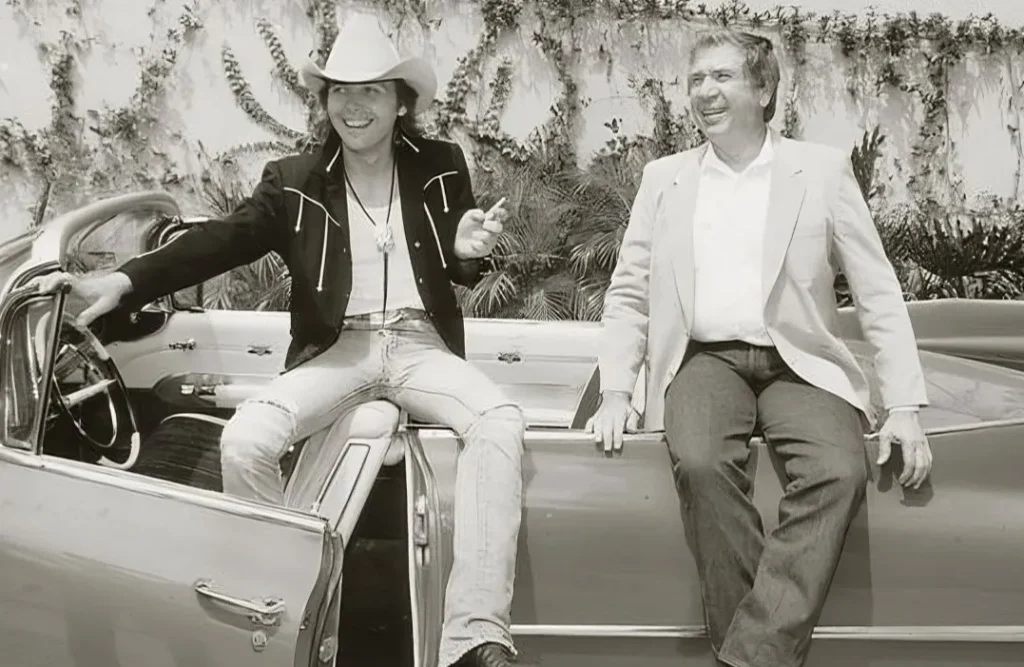
Redemption Wears a Broken Smile and a Steel Guitar
Released in 1993 as the title track of Dwight Yoakam’s seminal album This Time, “This Time” may not have stormed to the top of the charts as a standalone single, but it occupies a deeper, more haunting space in the canon of modern country music—a poignant centerpiece on an album that marked a turning point in both sound and sensibility. The album itself was a commercial triumph, reaching No. 4 on the Billboard Top Country Albums chart and going triple platinum, cementing Yoakam’s place not merely as a neo-traditionalist revivalist but as a transformative figure capable of threading Bakersfield grit with emotional depth. “This Time,” though overshadowed by radio hits like “Fast as You” and “Ain’t That Lonely Yet,” stands out for its aching introspection, its deliberate tempo, and its fearless confrontation with self-deception.
Lyrically, “This Time” is less a declaration than an elegy—an open confession from a man who has realized too late that love is not something to be casually misplaced. The song pivots on the aching refrain, “This time I won’t tear your world apart,”—a promise offered not to the beloved, but to the ghost of what might have been. It’s not just heartbreak that dwells here; it’s remorse sharpened by self-awareness. The narrator isn’t begging for another chance; he’s lamenting the irretrievable damage already done, delivering his regret with the weary wisdom that comes only after repeated mistakes.
Musically, Yoakam strips away the bravado often found in country storytelling. The arrangement is subdued yet intricate—layers of pedal steel weep beneath his unmistakable tenor, while brushed drums and tremolo guitars stretch each measure into melancholy. The production, helmed by longtime collaborator Pete Anderson, offers restraint rather than flash, allowing every breath of Yoakam’s vocal performance to convey raw vulnerability. There’s no honky-tonk swagger here; only reflection and resignation.
What makes “This Time” so enduring is its universality cloaked in specificity—it’s about this woman, this relationship, this failure, but also every lover who ever watched someone walk away because change came one heartbreak too late. In a genre where romantic loss is often dramatized or dismissed with a drink and a dance floor rebound, Yoakam resists easy catharsis. Instead, he paints sorrow in minor chords and mid-tempo pacing, demanding listeners sit with discomfort rather than dance around it.
Decades after its release, “This Time” remains one of Dwight Yoakam’s most emotionally resonant performances—not because it promises redemption, but because it admits redemption may never arrive. And perhaps that’s what makes it linger in memory longer than any chart-topping hit: the unflinching acknowledgment that some lessons can only be learned when it’s far too late to apply them.